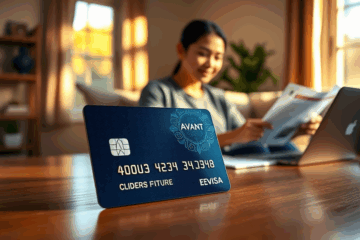Smart Tips for Using a Credit Card Wisely
Credit Card usage can be a great financial tool when managed wisely.
In this article, we will explore essential strategies to ensure that you can take advantage of the benefits of credit cards without falling into the trap of debt.
From paying off your balance in full each month to understanding interest rates and fees, these practices will empower you to build your credit responsibly.
By following these guidelines, you can enjoy the convenience of credit cards while maintaining your financial health and stability.
Building a Responsible Credit Mindset
Adopting a disciplined attitude while using credit cards is crucial for maintaining financial health.
A responsible mindset prevents the pitfalls of debt and paves the way for financial freedom.
Credit cards, while convenient, require a high level of responsibility, urging users to stay vigilant about their spending habits.
Balancing immediate needs with long-term goals ensures you reap the benefits without unnecessary financial burdens.
- Pay on time
- Monitor spending
- Understand interest rates
Establishing a consistent routine around these habits builds a robust foundation for responsible credit use.
Making timely payments, as highlighted in Sofi’s guidelines, avoids penalties and boosts credit health.
Monitoring spending helps you align every purchase with your financial plan, promoting disciplined habits.
Understanding interest rates empowers you to make informed decisions, as laid out in the iTHINK Financial insights, allowing for strategic spending in line with personal financial goals.
Practical Payment Strategies
Effective payment strategies are crucial for managing financial health and avoiding debt.
Understanding tactical repayment approaches can empower individuals to take control of their spending and enhance their creditworthiness.
The following subtopics will explore practical methods to ensure timely payments and responsible credit usage.
Pay Off Your Balance in Full Each Month
Paying your credit card balance in full each month ensures you avoid carrying a debt balance and accruing interest charges.
This practice is not only financially savvy but also enhances your credit score by maintaining a low credit utilization ratio.
Keeping track of your spending becomes more effortless, as you reduce the worry of debt piling up.
Remember the importance of paying by the monthly due date to fully benefit from your card’s interest-free period.
- Saves money on interest by maximizing the card’s grace period.
- Builds creditworthiness as timely payments reflect responsible financial behavior.
- Simplifies budgeting, as there are no unexpected fees or interest costs.
For more on how to benefit from this habit, visit this guide from CNBC.
Make Payments on Time
Paying your credit card bills on time is crucial for maintaining financial stability and creditworthiness.
Timely payments ensure you avoid unnecessary financial stress as missing deadlines can lead to compounded financial woes.
By setting reminders or automating payments, you can consistently meet due dates, thereby preventing the cascading effect of financial penalties and credit score impacts.
Visit PNC Insights on Credit Card Bill Management to better understand the significance of on-time payments and avoid the common pitfalls of procrastination.
Late fees not only drain your finances unnecessarily but also harshly affect your credit score, making you less favorable in the eyes of lenders.
Prompt payments are a cornerstone of financial health, and every late payment is a setback that can take months to rectify.
As your credit score lowers, you face the risk of increased interest rates, affecting everything from future loans to insurance premiums.
For more insights on improving your payment history, explore Experian Insights on Improving Credit History and take steps towards more responsible financial management.
Smart Spending Controls
Smart spending controls are essential for maintaining financial stability and maximizing the benefits of credit card usage.
By incorporating budgeting, monitoring, and mindful purchasing into your financial routine, you can prevent overspending and avoid falling into debt.
These practices not only help you keep track of your expenses but also empower you to make informed decisions about your purchases.
Create and Stick to a Budget
To design a realistic monthly budget, start by assessing your total income and deducting necessary fixed expenses such as rent and utilities.
Also, make sure to factor in your credit card limits, ensuring credit card spending remains within affordable boundaries.
This approach helps in setting a maximum spend allowance for each category, thereby encouraging mindful spending.
Maintaining this balance requires discipline and frequent updates to ensure you are tracking expenses diligently.
Regularly reviewing your budget helps reinforce your goals and address any overspending habits.
Embrace the importance of commitment to sticking to your budget, and empower yourself to adjust as necessary.
Implementing a routine check, such as using insights from services like Money with Katie, can provide clarity and improve financial management, leading to better control over credit card use.
Monitor Your Spending Regularly
Consistently monitoring your spending can greatly enhance financial management by employing both traditional and technological tools.
Regularly reviewing your credit card statements is crucial, allowing you to identify spending patterns and spot unauthorized transactions early, which helps avert potential fraud.
Digital alerts from mobile banking apps significantly aid in maintaining real-time awareness of your expenditures.
These alerts can notify you of critical moments, such as reaching a set spending threshold, effectively preventing overspending.
By setting up these notifications, you maintain better control over your finances and remain proactive in your spending decisions.
An example of an app alert might be: “You have reached 70% of your weekly spending limit.”
Avoid Unnecessary Purchases
In today’s consumer-driven society, impulse buying is a common challenge many face.
By recognizing and distinguishing wants from needs, individuals can take control of their spending habits.
An effective technique involves mindfully asking oneself, “Do I really need this item right now?” Additionally, allowing a cool-off period before making a purchase decision ensures that you’re making a financially sound choice.
Creating a shopping list and adhering to it also helps curb spontaneous purchases, aligning spending with long-term financial goals.
Moreover, setting clear financial boundaries, such as a monthly budget, can prevent overspending and foster responsible credit card use.
The practice of waiting a day or longer, as highlighted by leading experts on Ramsey Solutions, allows potential buyers to reevaluate their intentions and avoid unnecessary purchases.
This deliberate approach not only protects financial health but also reduces buyer’s remorse, leading to a more intentional lifestyle.
By incorporating these strategies, individuals can maintain a balanced relationship with their finances.
Protecting Your Credit Profile
Maintaining a healthy credit profile is essential for financial stability and security.
Responsible credit card behaviors, such as paying off your balance in full and on time, play a crucial role in building and protecting your overall credit standing.
By managing your credit wisely, you position yourself for better loan terms and opportunities in the future.
Keep Your Credit Utilization Low
Credit utilization is a crucial factor in maintaining a healthy credit score and avoiding debt.
It refers to the ratio of your credit card balance to your credit limit.
Keeping credit utilization low is essential, and experts highlight that staying below 30% can significantly impact your financial health in a positive way.
A low rate indicates to credit bureaus that you manage credit wisely, which can lead to better credit scores.
Lower utilization rates also reduce the risk of accruing unmanageable debt, as high balances can lead to high-interest payments if not paid off timely.
To ensure that your credit utilization remains favorable, there are several actionable steps you can take.
First, regularly monitor your spending to stay aware of your balance in relation to your credit limit.
Making multiple payments throughout the billing cycle can help keep balances low.
Additionally, consider requesting a credit limit increase without increasing your spending, as this lowers your utilization ratio.
Opt for using just a few cards and paying them off in full every month to avoid interest charges.
By following these strategies and maintaining a utilization rate well below the recommended threshold, you can enhance your credit score efficiently.
For more insights, visit Experian’s Credit Utilization Information.
Understand Interest Rates and Fees
Understanding the dynamics of credit card interest rates and fees is crucial for avoiding debt.
Credit card rates and fees like APR, late fees, and cash advance fees can significantly affect your finances if not managed properly.
APR impacts your balance when not paid in full, while late fees accrue if payments are missed.
By regularly reviewing your billing statements and using budgeting tools, you can avoid these pitfalls.
Below is a comparison of common credit card fees and their implications:
| Fee Type | Explanation |
|---|---|
| APR | Interest charged on unpaid balances |
| Late Fees | Applied for missed payments; avoidable with timely payments |
| Cash-Advance Fees | Charges for cash withdrawals, typically with higher APR |
| Overlimit Fees | Occur when spending exceeds your credit limit |
Understanding these can save you from unexpected costs and help manage credit wisely.
Credit Card management is key to financial success.
By implementing the strategies discussed, you can enjoy the rewards of credit cards while avoiding debt.
Stay informed and disciplined, and you’ll build a solid credit history over time.



0 Comments